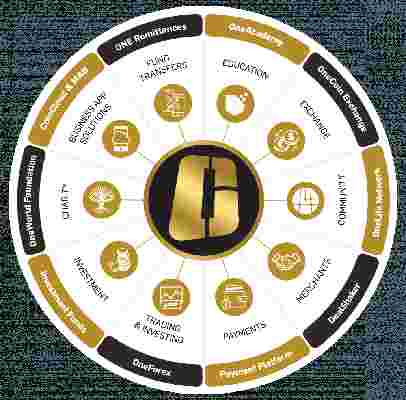A Brazilian cryptocurrency crime cartel has been shut down after conning over 55,000 investors for over $200 million.

The cartel ran an unlicensed financial institution without authorization from Brazil‘s Central Bank. The scammers claimed to offer cryptocurrency investments and promised investors 15-percent returns on their capital, local news Correio Do Povo reports .
The Federal Revenue Service said the company had managed to raise around R$850 million ($210 million) by February 2019 from would-be investors. Authorities believe the number could actually be closer to R$1 billion ($248 million), though.
The illegal operation has since been dismantled following a joint operation between the Brazilian Federal Police and the Federal Revenue Agency. Operation Egypto executed 10 arrest warrants, and 25 search and seizure orders across eight Brazilian cities, including Novo Hamburgo where the cartel’s business was based.
The Federal Police’s Office of Corruption and Financial Crimes’ Eduardo Dalmolin Boliis highlighted that investing in cryptocurrencies isn’t actually illegal. However, “the problem with this company is that it was acting without authorization,” he said in the report.
Following operation Egypto’s investigations, authorities found that the group was not investing in cryptocurrency at all. Instead, the group was placing it in a series of low-yield and fixed rate investments, and spending it on luxury items like cars, real estate, and jewelry, among other things.
Authorities have seized the firm’s financial assets, dozens of real estate, 36 luxury vehicles, and an undisclosed amount of money.
The group is also being investigated for fraudulent management, financial misappropriation, money laundering, and criminal organization.
This isn’t the first cryptocurrency related crime in Brazil, earlier this year Brazilian authorities arrested a man on suspicion of running a drug trafficking ring and laundering money with Bitcoin.
On that occasion, police seized over R$250,000 ($63,000) worth of equipment used to mine Bitcoin.
Here are the 3 ways OneCoin defrauded cryptocurrency investors for billions
The alleged ringleaders of OneCoin, the multi-billion dollar cryptocurrency-fuelled pyramid scheme, have finally been busted.

On Friday, US authorities apprehended brother-and-sister duo Konstantin Ignatov and Ruja Ignatova at Los Angeles International Airport over their role in the international blockchain-based scam, reports Bloomberg .
Ignatova, the founder of OneCoin, was charged with securities fraud, wire fraud, and money laundering, but as yet is not under arrest. Ignatov is alleged to have taken over OneCoin, and was arrested on a charge of conspiracy to commit wire fraud.
A third suspect, Mark S. Scott (a former partner of major US law firm Locke Lord), had already been arrested, charged with laundering more than $400 million for OneCoin, primarily through bank accounts in the Republic of Ireland and the Cayman Islands.
FBI assistant director-in-charge William Sweeney Jr. explained the allegations in a statement :
Creating billions of dollars with nothing but blockchain bullshit is immensely impressive ( albeit not unprecedented ), so let’s take a look at how OneCoin got to be this enormously fraudulent.
No cryptocurrency, no blockchain, and no coins
Police revealed OneCoin Ltd is actually a “multi-level marketing network” that distributed commissions to members for recruiting others to buy fraudulent “cryptocurrency packages” from OneCoin Ltd directly.
The phony firm claimed their cryptocurrency is “mined” using services run by the company directly, and that the market value of the generated coin is based on market supply and demand.
Its website still features this neat infographic that purports to represent the utility of OneCoin. None of these really exist.


In reality, OneCoins aren’t at all mined using computer resources, and their value is entirely pre-determined by the scammers themselves, who have “programmed” it to rise from €0.50 ($0.56) to roughly €29.95 ($33.68) per coin.
Investigators also refuted OneCoin’s claims that it maintains a private “blockchain” that identifies and records OneCoin transactions. Police actually found OneCoin lacks “a true blockchain, that is, a public and verifiable blockchain.”
As of March 2015, the scammers have been allocating OneCoin members “coins” that don’t really exist – not even on the fake, private OneCoin blockchain. Authorities allege its founders referred to these coins as “fake coins.”
While the total figure for how much money has been defrauded from investors is yet to be determined, records reportedly show OneCoin Ltd. made €3.35 billion ($3.38B) in sales revenue between Q4 2014 and and Q3 2016, with profits of €2.23 billion ($2.5B) in the same period.
The OneCoin scam is reportedly still running to this day.
OneCoin exists entirely to defraud cryptocurrency investors
The brazenness of these fraudsters is certainly something to behold. One email reportedly reveals that when Ignatova expressed her idea of what the “exit strategy” for OneCoin could be, the first option was to “take the money and run and blame someone else for this.”
Most recently, Ignatov travelled to the US lure even more international investors into purchasing his dodgy cryptocurrency. Authorities stated he met with a number of OneCoin affiliates in Las Vegas between February 27 and March 6 2019.
When Ignatov was quizzed over when OneCoin members would be able to monetize the cryptocurrency they had bought, he allegedly replied: “If you are here to cash out, leave this room now, because you don’t understand what this project is about.”
Throughout Ignatov’s time as OneCoin’s spiritual leader, he is accused of making false representations to OneCoin members in order to fool them into buying additional trader packages.
In particular, Ignatov repeatedly encouraged potential buyers of the possibility that OneCoin would undergo a series of “initial public offering” rounds between 2018 and 2019 in a bid to solicit additional investments. To date, no such offering has taken place.
Ignatova, who remains at large, faces five counts, four of which carry a maximum sentence of 20 years in prison, with the last a maximum of five years.
Ignatov is charged with one count of conspiracy to commit wire fraud, which has a maximum sentence of 20 years in prison attached.
Scott, the accused US-based money launderer, is indicted with one charge of conspiracy to commit money laundering, which also carries a maximum sentence of 20 years in prison.
No more pyramids or Ponzis, please
This story is almost identical to the BitConnect scam , which until now has been referred to as the biggest cryptocurrency-fuelled pyramid scheme in history (it once “enjoyed” a market cap of over $2.6 billion).
Let’s reiterate this: multi-level marketing and tiered referral systems are absolute red flags, not only in cryptocurrency and blockchain, but in the greater investment sector.
Again, incredible promises of passive revenue from cryptocurrency companies are exactly that – incredible.
Pyramid and Ponzi schemes only work as long as their founders can pump new money into the fraudulent ecosystem , and only they can ever know when that money runs out.
Did you know? Hard Fork has its own stage at TNW2019 , our tech conference in Amsterdam. Check it out .
WATCH: Bitcoin ATM showers London’s Bond Street station in cash money
No, this isn’t a new Anderson Paak video. In a bizarre scene, footage shows a Bitcoin ATM spewing heaps of cash in a shopping centre nearby London’s Bond Street train station, while a security guard does their best to keep onlookers at bay.

The video of the curious incident was first posted to Reddit late yesterday. A man is seen desperately trying to catch as many flowing bank notes as possible with a duffel bag placed in front of the machine (spoiler: it doesn’t work).
While Redditors speculate bad actors could have caused the eruption with “ jackpotting ” (a term for hacking ATMs to dispense money on command), Shitcoins Club – the Polish company handling the machine – told Hard Fork the withdrawal was intentional.
“Everything was going well during this transaction,” the Shitcoins Club rep told Hard Fork. “As you can see there is a bag in front of the ATM.”
Strange shit has happened to this Bitcoin ATM before
Curiosity has surrounded this exact ATM before. Roughly one month ago, a suspicious image of an unknown user accessing the machine was shared to social media .











